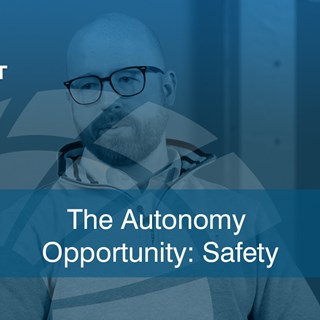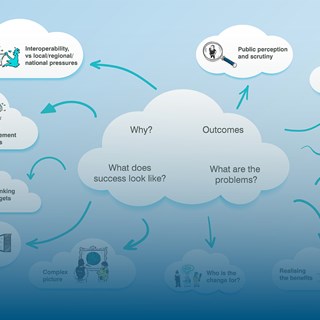
29 August 2024
Welcome to the third article in this series on some of the lesser-known subconscious biases in the workplace.
This piece will focus on hindsight bias; an implicit cognitive bias surrounding post-event rationalisation that is so prevalent we see it happen nearly every day.
“Nothing is so easy as to be wise after the event” [i] (Cornman V The Eastern Countries Railway Co)
Hindsight bias occurs when looking back on an uncertain event, with the clouded judgement that at the time, it would have been easily predictable. Also known as the ‘knew-it-all-along-effect’; it focuses on the inherent human tendency to exaggerate in hindsight, what was known in foresight, after learning the true outcome of events. Labelled as a form of ‘creeping determinism’ by Fischhoff [ii], hindsight bias is typically categorised into three primary variables: memory distortion (i.e. ‘I said it would happen’), inevitability (i.e. ‘It had to happen’) and predictability (i.e. ‘I knew it would happen) [iii].
Hindsight bias can take many forms and is present at all levels of both personal and professional life. For example, after a football match or a political election, it is very common to hear people claim that they knew what the outcome of the result would be after it has been revealed; when in fact, it was impossible to 100% know what the eventual outcome would have been before it was finalised. Similarly in our personal relationships, it is not uncommon to hear that one ‘recognised the signs all along’, after the eventual breakdown of a relationship. When in fact, it is only in this state of post-event rationalisation, that unforeseen events become foreseeable [iv]. In short, there is a very common tendency for people to perceive past events as being more predictable than they actually were. Fundamentally, the belief that one ‘knew it all along’ can be detrimental to decision-making as this bias distorts our view of our own judgement, and can therefore prevent learning from experience. In turn, hindsight bias can have severe implications for project management, impacting the assessment of decisions, hindering learning, and contributing to overconfidence in (and in turn the potential jeopardising of) project success [v].
While the mere action of commenting on the outcome of an event with the benefit of hindsight may seem innocent, the effects that this can have on our internal track record and future decision-making can actually be quite damaging. Hindsight bias distorts our own perception of how good at decision-making we are. When our judgement is clouded by hindsight, we do not acknowledge what we actually believed at the time of the event, therefore making it less likely for one to reflect on whether the judgements made were right or wrong.
“If you feel like you knew it all along, it means you won’t stop to examine why something really happened... “It’s often hard to convince seasoned decision makers that they might fall prey to hindsight bias.” (Neal Roese, 2012) [vi].
The danger of this flawed assessment can contribute to a ‘decision trap’, a cognitive shortcut one would be prone to rely on again, because they did not truly acknowledge its success rate in previous instances of decision-making. Without realistically assessing the consequences of our judgments, we are fundamentally preventing learning, and improving, from experience. Correspondingly, this can contribute to the overconfidence of the decision-maker, contributing to them making future risky decisions.
Within the realm of project management, ‘project planners and decision makers underestimate risk by overrating their level of knowledge and ignoring or underrating the role of chance events in deciding the fate of projects’ [vii]. Hypothetically imagine that after having their procurement strategy rejected, a PM claims they ‘knew this was going to happen’ and as a result the team have to replan. If the PM had known this were to happen of course they would have signified this to the team in advance, allowing them to prepare and avoid. Thus, commenting this in hindsight is not only counter-productive, but suggests the PM is not taking time to reflect on the situation, and the ways that one can learn lessons to avoid making similar mistakes in future.
Another key effect of hindsight bias is myopia (short-sightedness) and the way this can influence ‘subjective evaluations’ [viii]. Commenting on an event with the comfort of hindsight can cause an individual to think myopically, with tunnel vision that caters to the result which is known. T.A. Louie uses The Enron Corporation as an interesting example to highlight the way hindsight bias contributes to the judgement of both the favourable and unfavourable decisions of others. Louie claimed that at the peak of Enron’s success ‘Hindsight bias served to fuel Enron’s dynamic image (e.g., "I knew they would be profitable because the company is so innovative"). Juxtaposing this however, when Enron’s CEO announced negative earnings of $1.2 billion in 2001, public perception then centred around individuals condemning ‘financial advisors for not anticipating what, in retrospect, seemed like the company's inevitable failure’ [ix]. This is just one of many examples where the influence of outcome knowledge myopically affects one’s judgement of events, after the relevant outcome is known.
As stipulated, hindsight bias can contribute to exaggerated levels of confidence, which can jeopardise the accuracy of future decision-making. Although typically one would assume the presence of biases to be negative, ‘if the confidence produced by hindsight distortion for past success is contained, then it can result in favourable effects’ [x]. Thus, although embellished by hindsight, the belief that one has predicted a previous event correctly, will naturally somewhat boost an individual’s self-esteem. Therefore, hindsight bias can have a positive effect on an individual’s performance, by providing them the psyche boost to make confident decisions when they are faced with them, resulting in increased cognitive efficiency.
Similarly, for some, hindsight bias is a comforting entity. The process of attempting to make sense of past experiences and knowing that events can be rationalised, provides a form of stability in a somewhat unpredictable world; the belief that unpredictable events can be predictable [xi].
Furthermore, it has been hypothesised that individuals with positive self-views have increased motivation, persistence, and performance’ [xii]. While of course, this level of hubris and over-confidence can be dangerous if used to justify risky decisions, it is inevitable that there will be times when self-assurance can be beneficial to the decision-maker, and those around them. One’s self-assurance of knowledge and decision-making, even if ultimately turning out to be an overconfident misjudgement, can be beneficial in allowing others to either reap the reward, or learn from another’s mistake. For example, a project manager may take a risk to overspend a budget in order to bring the schedule back to a realistic and appropriate plan (a decision based on hindsight bias, previous project experience and overconfidence). Of course, this could pay off if the project were to find savings elsewhere, meaning the project is delivered on time. Alternatively, the schedule could continue to be running behind despite the extra capital spent. Either scenario somewhat permits the beneficial gain of others; be that project success or learning from the poor decisions made by the project manager.
Hindsight bias remains however, something that should be dealt with in caution in both project planning and our everyday lives.
As with most sub-conscious biases the most compelling way to overcome hindsight bias is simply by being conscious of its existence, and perceptive of its individual effects. Recognising its presence within project management is crucial and should be considered in tandem with solutions that minimise its effects. Actively acknowledging our susceptibility to hindsight bias and the way in which it can influence our thinking and behaviour, will in turn foster an environment which promotes a more accurate decision-making process, in which past and future decisions are realistically accessed.
Here are a few ways that you and your colleagues can seek to reduce hindsight bias:

In conclusion, hindsight bias is a subconscious cognitive bias that manifests in all levels of society; and is a tendency most people succumb to without realising. Be it commenting on political predictions, the weather or even our personal relationships; the human tendency to believe we knew that something was going to occur is a common trope that most of us will innocently succumb to throughout our lives and on the whole, will be nothing more than a harmless comment.
What should be dealt with in caution, however, is the profound effects hindsight bias can have on decision making, distorting the internal track record we have of our past predictions, manifesting in the form of overconfidence that can be used to justify risky decisions. It is important to note that hindsight bias is avoidable, and self-awareness is your greatest tool in combatting its effects. Documenting predictions, engaging in open discussions and being accountable will mitigate your retrospective judgements, preparing you to make accurate judgements in the future.

After completing BMT's Graduate Development Scheme, Sophie is currently engaged in Training Consultancy Services. Prior to working at BMT, Sophie completed a BA in English Literature. Her educational background means that she is proficient in critical and evaluative reasoning, with an ability to gather, organise and deploy information. Sophie is proficient in navigating complex challenges with precision and insight.

Kathryn Walker
Coaching is a proven tool to support change leaders and their teams. The greatest impact and success has been achieved in transformation programmes, where structural and programmatic approaches are supported by attention to the cultural and behavioural aspects of change.

Will Roberts
At BMT, we believe simulation is a critical enabler in overcoming these hurdles—de-risking development, accelerating innovation, and building confidence across the entire lifecycle of autonomous systems.

N/A
Get ready to dive deep into maritime autonomy as we bring you technical experts, insightful opinions, and unmissable discussions.

N/A
Delve into the top 10 challenges and interdependencies involved in selecting and adopting from the plethora of technological developments, and then embedding multiple new technologies in frontline UK policing, highlighting the multifaceted nature of this undertaking.